Retirement savings can be a critical part of planning for your financial future. However, it’s important to understand the tax implications of these savings in order to make the most of your retirement income. Here are some key tax considerations to keep in mind when planning your retirement savings:
Tax-deferred vs. tax-free savings: There are different types of retirement accounts, including traditional IRAs, 401(k)s, and Roth IRAs. Traditional retirement accounts allow you to save money on a pre-tax basis, which means you don’t pay taxes on the money until you withdraw it in retirement. Roth retirement accounts, on the other hand, are funded with after-tax dollars, which means that qualified withdrawals are tax-free. Understanding the tax implications of these different types of accounts can help you make informed decisions about where to save your money
- Required minimum distributions (RMDs): Traditional retirement accounts have required minimum distributions (RMDs), which are mandatory withdrawals that you must take once you reach a certain age. These withdrawals are taxable, so it’s important to plan ahead for how they will impact your retirement income and tax liability.
- Social Security benefits: If you’re planning to rely on Social Security benefits in retirement, you should be aware that these benefits may be subject to federal income taxes, depending on your income level. This means that your retirement income and tax liability may be higher than you expect, so it’s important to plan ahead for these potential taxes.
- Estate taxes: If you plan to leave money to your heirs, you should be aware that estate taxes may apply to your retirement savings. Estate taxes can be complex, so it’s a good idea to work with a financial advisor or estate planning attorney to understand how these taxes may impact your heirs.
- When it’s time to transition from saving money to spending money in retirement:
By taking these tax implications into account when planning your retirement savings, you can make sure that you’re prepared for the financial realities of retirement. It’s always a good idea to work with a financial advisor or tax professional to help you navigate these complex tax issues and make informed decisions about your retirement savings.
If you need the insight of a financial advisor, consider working with a Hazard & Siegel Independent Financial Professional. An Independent advisor will make the best decisions for you because they are not affiliated with an investment company, mutual fund, or specific investment product. Hazard & Siegel Independent Financial Professionals are part of a network of registered investment advisors, insurance professionals, and investment brokers. Our independent financial professionals are available to advise you on planning for your future including paying for college, wealth management, retirement planning, paying for long-term care, estate planning, insurance needs, and wealth transfer.
Hazard & Siegel offer clients the flexibility and choice of both fee-based and commission-based platforms, dependent upon what works best for your plan, and what you are most comfortable with. Both approaches have their advantages, but ultimately you as the client get to decide which fee structure or combination of fee structures work best for you.
Talk to Hazard & Siegel when you need a comprehensive lifetime financial solution.
Contact us today at 315-414-0722, or visit our personal investing page.

